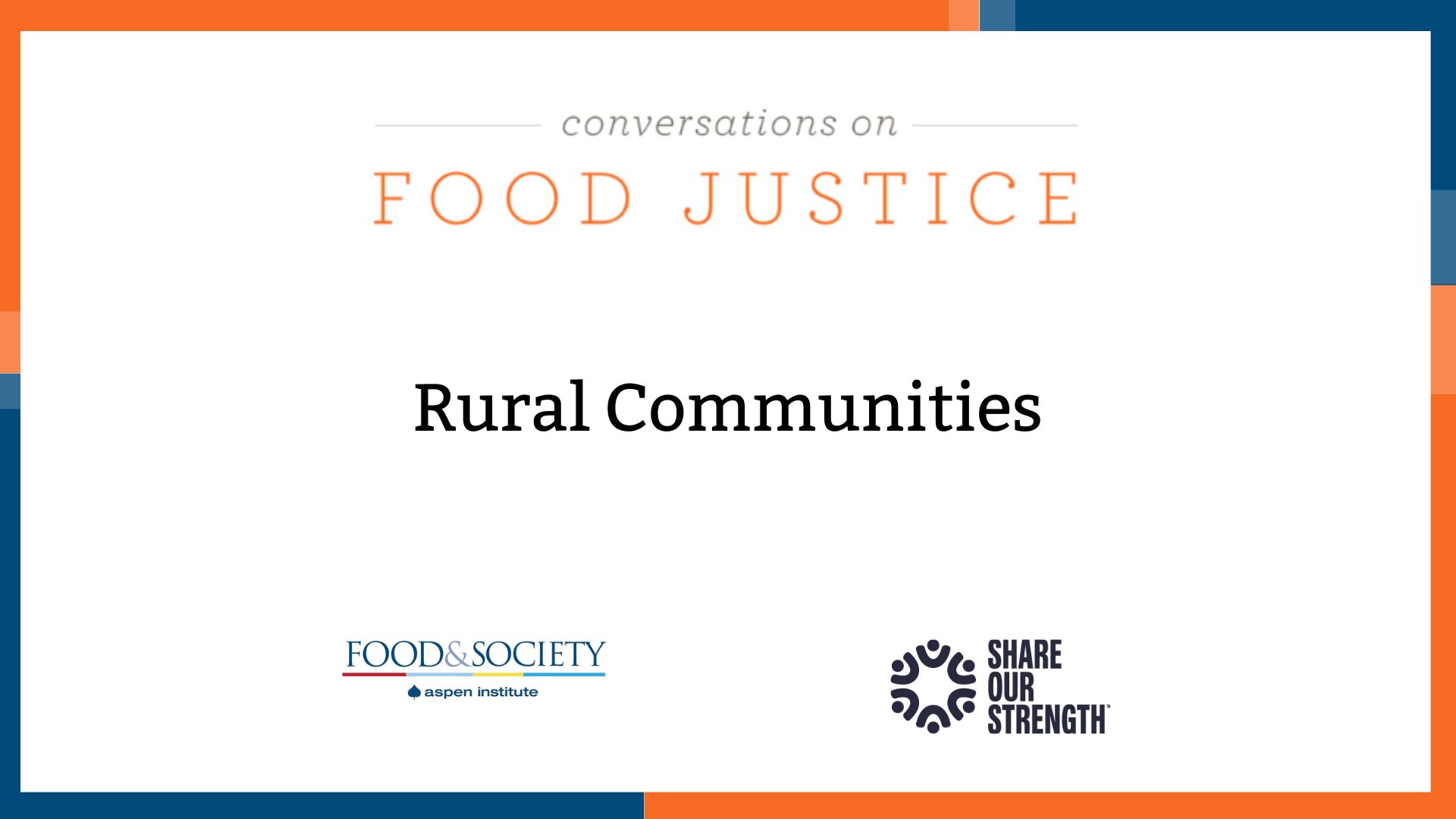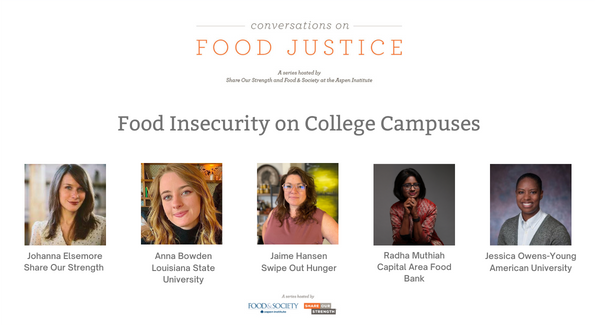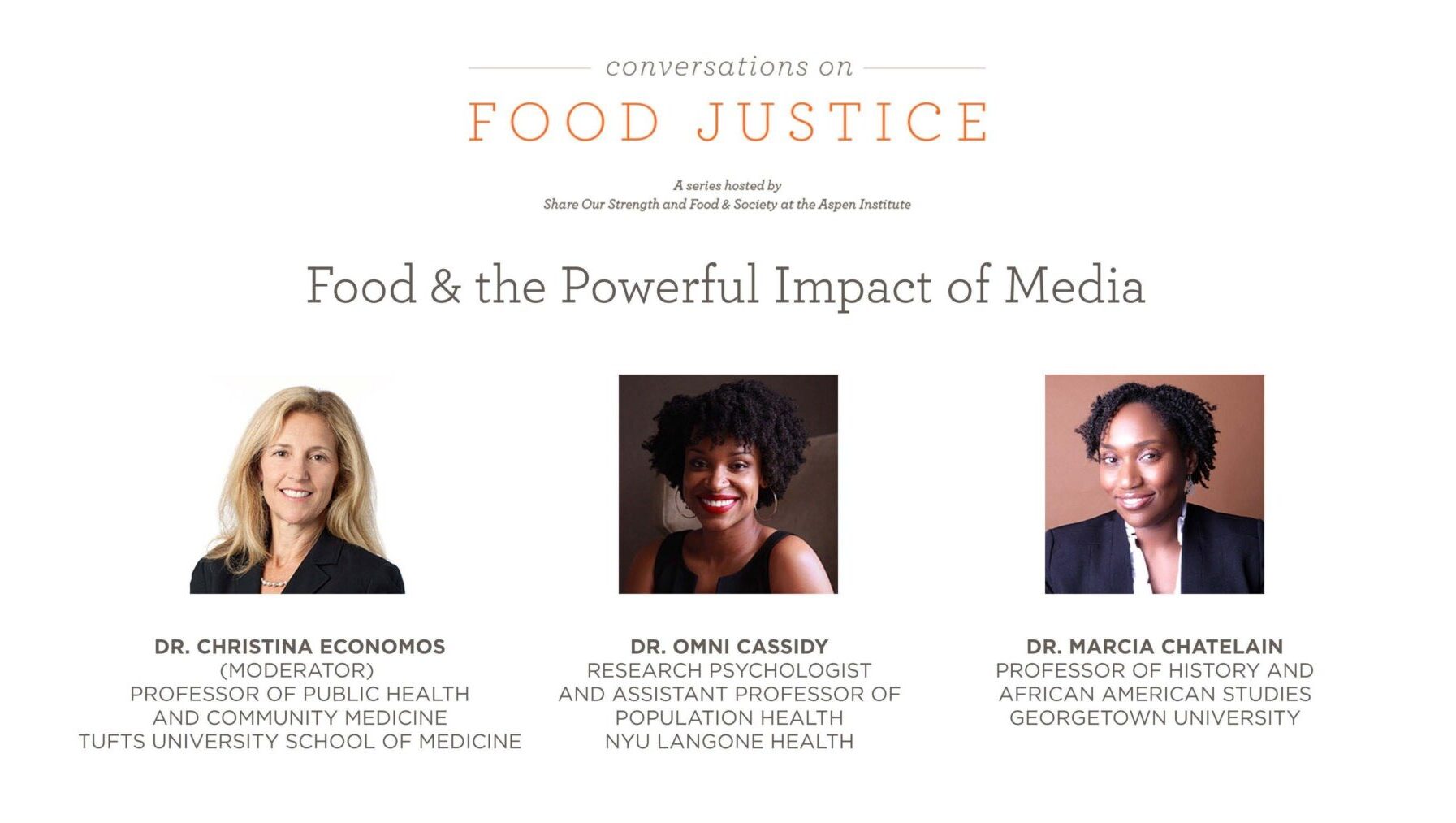Across the U.S., we’ve seen an alarming uptick in the cost and frequency of extreme weather and climate disasters.
Disasters test the resilience of communities and can have far-reaching effects on access to food—disrupting supply chains, damaging infrastructure, contributing to displacement, and threatening economic security. While much attention is paid in the immediate aftermath of a disaster, the road to recovery is long—particularly for communities already facing social, economic, and political barriers to equity.
This conversation will dive into the post-disaster landscape of food security. Panelists will examine how disasters disrupt food systems, exploring the policy and infrastructure failures that cause disasters to disproportionately impact marginalized communities. Panelists will discuss innovative strategies, collaborative efforts, and sustainable solutions that empower communities to recover, rebuild, and transform their food systems in the wake of a disaster.
Our Panelists
Richard Comeau, Chief Program Officer at Hunger Free Oklahoma and 2023 Food Leaders Fellow
Richard Comeau is the Chief Program Officer at Hunger Free Oklahoma, a nonprofit working to ensure every Oklahoman has enough nutritious food every day. He also serves as the principal investigator for Double Up Oklahoma, one of the largest nutrition incentive programs in the country. Richard thrives at the intersection of mission and implementation and leads teams to anticipate challenges, leverage data to drive decision making, and develop and action a broad portfolio of anti-hunger programs in Oklahoma. A Texas native, Richard brings a rich family history in agriculture and ten years of experience in food and anti-poverty policy to Oklahoma which he now proudly calls home. He holds a Bachelor of Science in Agriculture Development, a Graduate Certificate of Regulatory Science in Food Systems from Texas A&M University, and a Master of Public Administration from The Bush School of Government and Public Service.
Rhonda Jackson, Director, No Kid Hungry Louisiana
Rhonda Jackson, MSW, has been the Director of No Kid Hungry Louisiana for over 12 years. She is passionate about ending childhood hunger in Louisiana by ensuring all kids have access to healthy meals and are therefore prepared to learn and able to thrive. Throughout her career, Rhonda has advocated for the needs of children in the school system and working with local nonprofits to implement universal school breakfast programs where every child could at least begin the day prepared at least from a nutritional standpoint.
Mari Jo Laborde, Executive Director and CEO, Banco de Alimentos de Puerto Rico
Mari Jo Laborde joined the Banco de Alimentos de Puerto Rico in June, 2022 as Director of Operations, as part of a leadership transition process at the food bank. She was appointed Executive Director/CEO in January, 2023, upon the retirement of her predecessor. Prior to joining the Bank, she held C-level positions in various industries, ranging from leading multinationals, such as Procter & Gamble and Kodak, to the non-profit sector, as well as a strong entrepreneurial experience.
Dr. Vanessa Nicholson-Robinson, Assistant Professor and Co-Investigator, Delta G.R.E.E.N.S. (Growing a Resilient, Enriching, Equitable, Nourishing Food System) Food is Medicine Project, Tufts University School of Medicine
A native Mississippian, Vanessa Robinson is a health equity research scientist. Her area of expertise involves equitable infrastructure development and analysis of organizational projects via processes of culturally responsive program evaluation and qualitative research designed to voice the needs and strengths of historically marginalized communities. Some evidence of her work is reflective in her creation of unit lead positions of Tufts Center for Black Maternal Health and Reproductive Justice. As one of the co-investigators of the Delta G.R.E.E.N.S. project, she advises on socially respectful, best-practice methodologies in attaining nutritional justice for the Mississippi Delta communities.



